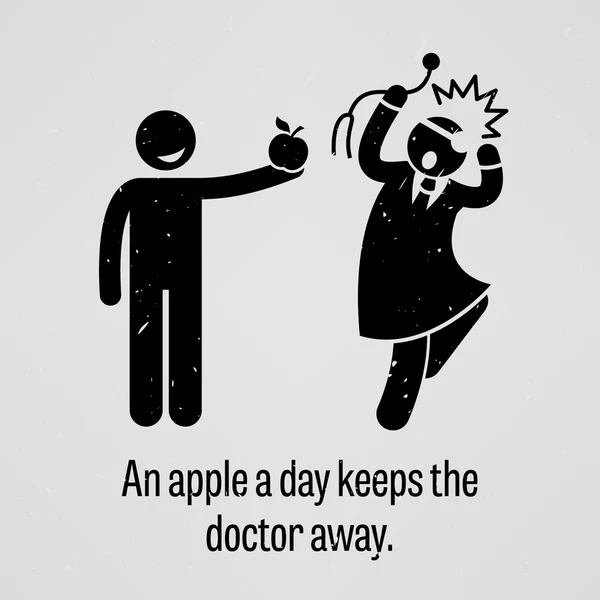Did you know you can not only improve your health but also treat chronic diseases such as diabetes, heart disease, or even certain cancers using the food you eat? This concept, known as “food as medicine,” is reshaping how we think about healthcare.
By prioritizing nutrition, we can prevent illnesses, promote well-being, and in some cases, reverse long-standing health conditions. From ancient Ayurvedic principles to cutting-edge scientific studies, food is proving to be one of the most effective and accessible tools for health and healing.
In this blog post, you will learn how to use nutrition-based healthcare to boost your immunity, health and treat lifestyle diseases.
What Does Food as Medicine Mean?
The idea of using food as medicine has deep roots in ancient traditions like Ayurveda and Traditional Chinese Medicine. In Eastern Medicine, diet is an integral part for maintaining health and preventing diseases.
In modern terms, food as medicine means understanding and leveraging the relationship between nutrition and health outcomes. It emphasizes consuming whole, nutrient-rich foods that nourish the body and strengthen its ability to combat illness.
Scientific research increasingly backs this idea. Recent studies show that dietary choices directly impact our gut microbiome, which influences digestion, immunity, and even brain function. Organic, nutrient-dense foods can reduce the toxic load on our bodies, improve overall health, and even affect gene expression.
Why is Food as Medicine the Future of Healthcare?
The future of healthcare focus on prevention rather than cure. Diet-related illnesses like obesity, diabetes, heart disease, and autoimmune disorders are rising globally. Conventional medicine often addresses symptoms rather than root causes, leaving many patients trapped in a cycle of treatments and medications.
However, growing evidence highlights the transformative impact of dietary interventions. For instance, research has shown that plant-based diets can significantly lower the risk of heart disease and manage diabetes. Similarly, anti-inflammatory foods like turmeric and omega-3-rich fish have been linked to reduced symptoms of arthritis and other chronic conditions. By shifting our focus to nutrition, we can create a healthcare model centered on empowerment, prevention, and sustainable health.
How Food as Medicine Works

The concept of food as medicine emphasises the significant role that nutrition plays in health and disease management. similarl to the proverb that an apple a day keeps the doctor away, the approach advocates for the use of whole, minimally processed foods to prevent, manage, and even reverse various health conditions as detailed below. While food can serve as a powerful tool for enhancing health, it is important to note that it should complement, not replace, conventional medical treatments when necessary
- Prevention Over Cure
The primary goal of food as medicine is to prevent chronic diseases before they develop. Incorporating nutrient-dense foods into your diet—like leafy greens, whole grains, and healthy fats—can build long-term resilience. - Gut Health Is Key
A healthy gut microbiome is essential for overall well-being. Fermented foods and fiber-rich diets like yogurt, kimchi, and fiber-rich vegetables support are vital for gut bacteria, improving digestion, immunity, and even mood. - Soil and Nutrition Connection
Nutritional value starts at the source. Modern agricultural practices often deplete soil nutrients, reducing the quality of the food we eat. Supporting regenerative and organic farming practices ensures access to healthier, more nutritious food. - Food Synergy
The concept of food synergy focuses on how combinations of foods impact nutrient absorption and digestion. For example, pairing iron-rich foods with vitamin C enhances iron absorption, while avoiding processed foods improves nutrient utilization. Slow, low, and mindful cooking methods optimize digestion and allow the body to utilize nutrients efficiently. - Personalization Matters
Everyone’s nutritional needs are unique. Factors like genetics, lifestyle, and health conditions influence how food interacts with the body. Consulting with a nutritionist or holistic health practitioner can help tailor a diet that meets your specific needs.
How to Implement Food as Medicine in Your Life
Adopting the food-as-medicine mindset doesn’t require an all-or-nothing approach. Small, conscious changes can lead to significant health improvements. Below are practical steps to get started:
- Choose Organic Whenever Possible
Organic fruits, vegetables, and grains are free from harmful pesticides and offer higher nutrient density compared to conventional alternatives. While the cost of organic food can be a concern, focusing on seasonal produce and joining community-supported agriculture (CSA) groups can make it more affordable. - Focus on Whole, Real Foods
The foundation of a healthy diet is real, unprocessed food. Replace pre-packaged, ultra-processed options with whole grains, fresh produce, legumes, nuts, and seeds. Simple swaps, like opting for homemade meals and snacks, can make a big difference in overall health. - Learn to Read Food Labels
Eating healthy requires an understanding of what to look for on food labels. Avoid products with long lists of ingredients, excessive sugar, or artificial additives. Educate yourself about terms like GMOs and “organic-certified” to ensure you’re making informed decisions. - Incorporate a Plant-Based Diet
One of the most profound dietary shifts favoring health and disease prevention is incorporating more plant-based meals. These diets are anti-inflammatory, nutrient-dense, and environmentally sustainable, providing benefits for both personal health and the planet. - Experiment with Fermented Foods
Fermented foods like yogurt, kimchi, sauerkraut, and kefir introduce probiotics to the gut, promoting a healthy microbiome. They are easy to add to meals and provide remarkable benefits for digestion and overall health. - Listen to Your Body
Ayurveda teaches us to listen to the body’s natural cues. Pay attention to what makes you feel energetic and balanced, and recognize how food can act as both fuel and medicine. - Educate Yourself and Your Family
Healthy habits start young. By teaching children about cooking, gardening, and making healthy choices, we are investing in a healthier and more informed future generation.
FAQ: Your Food as Medicine Questions Answered
- What are some foods that act as medicine?
Foods like turmeric, ginger, leafy greens, berries, fatty fish, nuts, seeds, and fermented foods are known for their healing properties. They help reduce inflammation, support immunity, and provide essential nutrients. - How can I incorporate this in daily life?
Start small by adding nutrient-dense ingredients to your meals. For example, include spinach in your smoothies, use turmeric in soups, or snack on almonds instead of chips. Planning meals and experimenting with healthy recipes can make the transition enjoyable. - What studies support food as medicine?
Numerous studies have highlighted the role of nutrition in health. Research shows that plant-based diets lower the risk of chronic diseases, while fermented foods improve gut health. The “Blue Zones” studies also reveal that diets rich in whole, plant-based foods contribute to longevity and reduced disease rates.
Challenges and Solutions
While adopting the food-as-medicine approach has immense benefits, it’s not without challenges:
- Access to Organic Foods: Advocate for better subsidies on organic produce and explore local farmer’s markets.
- Cost Concerns: Focus on affordable nutrient-dense staples like beans, lentils, and seasonal produce.
- Time Constraints: Utilize meal prep, batch cooking, and simple recipes to save time.
- Breaking Habits: Transition gradually by swapping processed foods for healthier alternatives one step at a time.
- Navigating Information Overload: Rely on reputable sources and consult healthcare professionals to personalize your approach.
Why Science and Art Need to Collaborate in Healthcare
A truly integrative healthcare system combines the art of personalized care with the science of evidence-based practices. Listening to individual needs and creating tailored solutions is as important as relying on validated research. This collaboration ensures a holistic approach to health and well-being.
Conclusion: A Health Revolution Rooted in Your Plate
The future of healthcare begins in our kitchens and gardens, not just in hospitals or labs. By embracing the principles of food as medicine, we can empower ourselves to take control of our health, prevent chronic diseases, and improve our quality of life. Start with small, actionable changes today, and remember: the food you eat has the power not only to heal your body but also to nurture the planet.





Thank you very much for such an article…
Very enlightening and eye opening especially with the current trends on matters lifestyle diseases.
Food really is medicine.
You’re very welcome! I’m glad you found the analysis helpful and eye-opening.